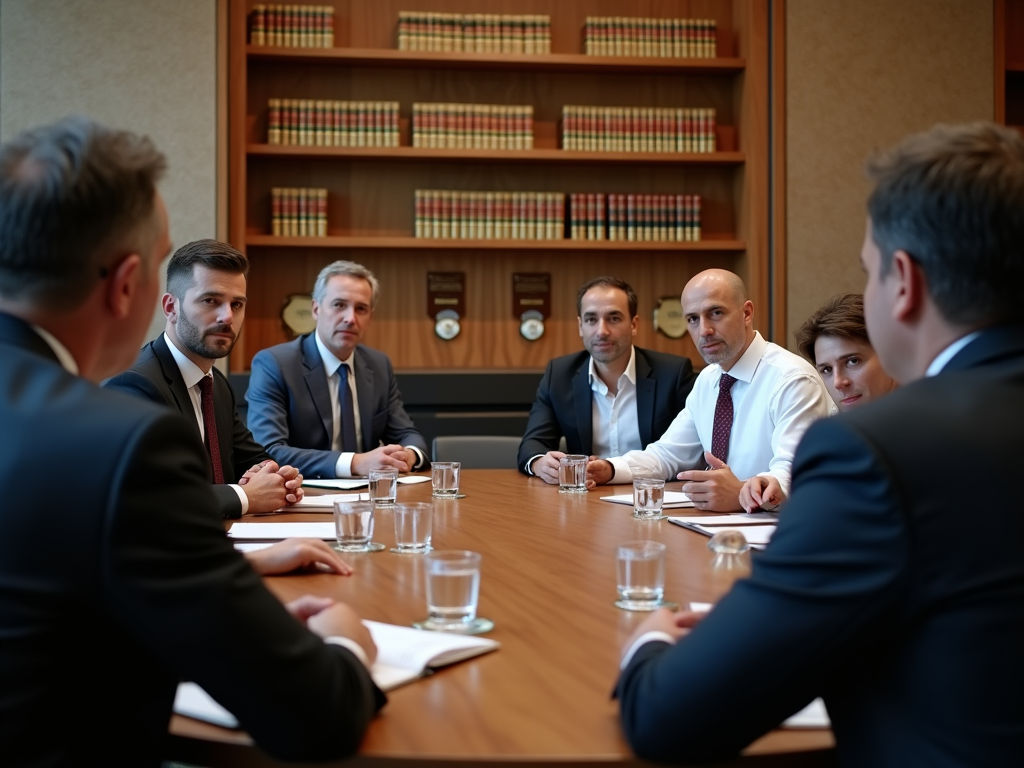The Dubai Commercial Arbitration System serves as a vital framework for resolving business disputes in the United Arab Emirates (UAE). Renowned for its efficiency and neutrality, this system plays a crucial role in fostering a secure business environment, making it an attractive destination for global investors. Arbitration in Dubai is governed by a set of modern laws and regulations that aim to streamline the dispute resolution process, ensuring that businesses can operate smoothly and confidently. This article delves into the intricacies of the Dubai Commercial Arbitration System, covering its legal foundation, procedural norms, benefits, and the institutions involved.
Legal Foundation of Arbitration in Dubai

The legal framework governing commercial arbitration in Dubai is primarily established by the UAE Federal Law No. 6 of 2018 on Arbitration. This law aligns with the principles set out in the UNCITRAL Model Law on International Commercial Arbitration, providing a comprehensive structure for the arbitration process. The law covers key aspects such as arbitration agreements, the appointment of arbitrators, the arbitral procedure, and the enforceability of arbitral awards. Notably, the Dubai International Financial Centre (DIFC) also has its own Arbitration Law, which is separate but complementary to the federal law. This dual system enhances the flexibility available to parties when choosing arbitration as their dispute resolution mechanism, allowing them to select the jurisdiction that best suits their needs.
Key Institutions Involved in Commercial Arbitration

Several key institutions play pivotal roles in administering commercial arbitration proceedings in Dubai. The most notable among these are:
- Dubai International Arbitration Centre (DIAC): Established in 2004, DIAC is a prominent arbitration institution that offers a neutral venue for resolving disputes. It administers both domestic and international arbitrations and provides comprehensive rules governing the arbitration process.
- Dubai International Financial Centre Arbitration Institute (DIFC-LCIA): A partnership between the DIFC and the London Court of International Arbitration, this institution focuses on international disputes, providing sophisticated services to cater to the needs of complex commercial cases.
- Sharjah International Commercial Arbitration Centre (Sharjah): Although primarily based in a different emirate, Sharjah’s centre often collaborates with Dubai institutions, allowing for broader dispute resolution options.
The arbitration process in Dubai generally follows these essential steps:
- Filing of Notice: The aggrieved party files a notice to initiate arbitration, accompanied by the requisite arbitration agreement.
- Constitution of Arbitral Tribunal: The parties agree on the number of arbitrators and their qualifications, typically appointing a sole arbitrator or a panel of three.
- Preliminary Hearing: A preliminary meeting is held to address procedural matters, timelines, and any preliminary objections.
- Exchange of Statements and Evidence: Parties present their claims and defenses, along with supporting evidence.
- Arbitral Hearing: A formal hearing takes place where both parties can present oral arguments and witness testimonies.
- Final Award: The tribunal deliberates and issues a binding award that signifies the conclusion of the arbitration process.
Benefits of Choosing Arbitration in Dubai
There are several compelling reasons for businesses to choose arbitration in Dubai, including:
- Confidentiality: Unlike court proceedings, arbitration offers a higher level of privacy, ensuring sensitive business matters remain confidential.
- Expert Arbitrators: Parties can select arbitrators with specific expertise relevant to their disputes, ensuring informed decision-making.
- Faster Resolution: The arbitration process tends to be quicker than litigation, enabling businesses to resolve disputes swiftly and minimize disruptions.
- Enforceability: Arbitral awards issued in Dubai are generally enforceable in over 150 countries, thanks to the New York Convention.
- Flexibility: Parties have greater control over the arbitration process, including determining the rules, language, and venue.
Conclusion
In summary, understanding the Dubai Commercial Arbitration System equips businesses with the knowledge necessary to navigate disputes effectively in a dynamic economic landscape. The robust legal framework, reputable institutions, and myriad benefits make arbitration an attractive option for commercial resolution in Dubai. As the region continues to grow as a global business hub, the importance of efficient and reliable dispute resolution mechanisms like arbitration cannot be overstated. By opting for arbitration, entities can foster smoother commercial relationships while safeguarding their interests.
Frequently Asked Questions
1. What is the primary law governing arbitration in Dubai?The primary law governing arbitration in Dubai is the UAE Federal Law No. 6 of 2018 on Arbitration.2. Can foreign parties opt for arbitration in Dubai?Yes, foreign parties can choose arbitration in Dubai, and the process is governed by both UAE federal law and DIFC arbitration rules if applicable.3. How long does the arbitration process typically take?The duration of the arbitration process can vary, but it is generally faster than traditional court litigation, often lasting several months to a year, depending on the complexity of the case.4. Are arbitration awards enforceable internationally?Yes, arbitration awards issued in Dubai are enforceable in over 150 countries that are signatories to the New York Convention.5. What are the costs associated with arbitration in Dubai?The costs involve various factors such as arbitrator fees, administrative costs, and legal fees and can vary significantly depending on the complexity of the dispute and the chosen institution.
